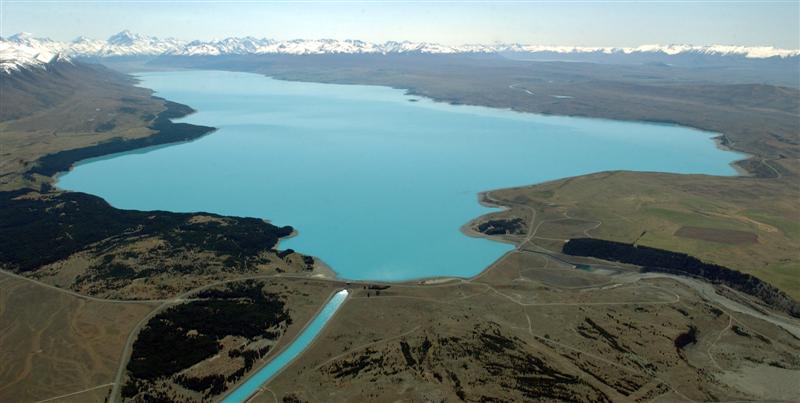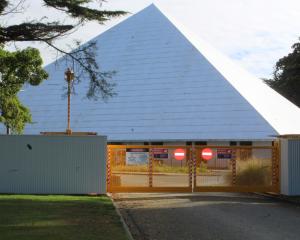
Transpower has been issuing daily updates of lake levels in recent times and power storage levels are well down on average for this time of year.
Lake levels are usually low at the end of summer but in recent weeks they have been low enough for generators to be concerned if autumn rains do not arrive.
National storage in April is 3488 gigawatt hours on average, yesterday it was 2624GWh, 480GWh away from the first of several risk curves Transpower monitors.
"The lakes are quite low but there have been lower years," a Transpower spokesman said.
"We monitor several risk curves so that if there was a problem we would be ready."
Storage levels have been concerning enough for the Huntly power station, near Hamilton, to have been operating at near full capacity in recent days.
Among the lakes Transpower monitors, Lake Pukaki was at almost half its historical average storage capacity, as was Lake Manapouri.
Te Anau was in a similar position, but Lake Hawea was at 219GwH, about 75% of average.
"We are not about to take any action, but we are getting near to the point where we would have to start thinking about taking some action, but we don’t know yet if that will be necessary," the spokesman said.
Most years it would rain, but Transpower operated on current figures rather than its expectations, he said.
"Where we are sitting now is the starting point for preparedness ... but where we sit now, going by the 90 years of data we have available, there usually isn’t a problem.
"But our job is to be ready, in case this is a year where there is a problem."
Underpowered
National storage: 64.6% of average
North Island: 56.4% of average
South Island: 65.2% of average
Comments
Another good reason to look forward to the toxic wasteland at Tiwai point closing down.
This happens like clock work every few years now and only going to get worse. Next will come further water restrictions, then requests to cut electric usage costing the economy millions, whilst lakes continue to have to be used to keep the lights on so drop further still.
Frustrating as simple and rapid solution is solar / wind and battery storage co located with the existing high voltage network. The near constant wind and high levels of sunshine hours are a perfect counter balance. Costs have dropped massively, but no strategic mechanism in the NZ electricity market to incentivise the energy companies, not their economy that suffers when electricity prices rise.
"We are not about to take any action, but we are getting near to the point where we would have to start thinking about taking some action" and no doubt that "action" includes raising the power prices for customers.
Do they want the rain though? With low lake levels they can charge much higher spot prices, and a lack of rain saves them the trouble of spilling the water to artificially induce shortage. The generation companies are in the business of maximising return to shareholders--they don't care a jot about the consumer as long as they can milk us for every possible cent, and a drought is as good an excuse as any.










